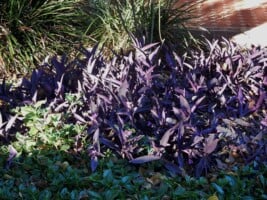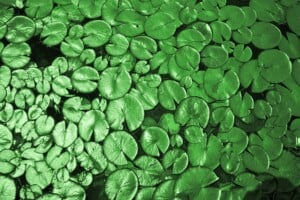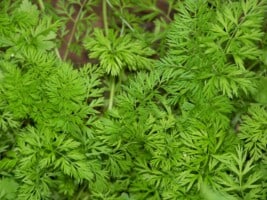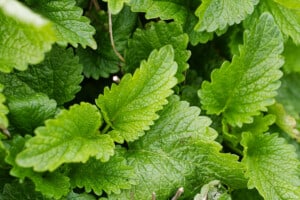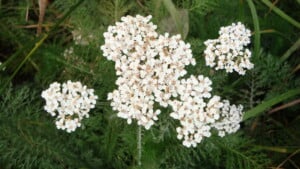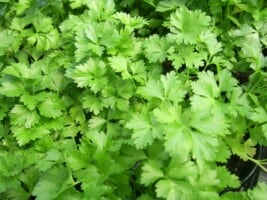The sight of a nibbled fern frond in a child’s hand can be frightening. These prehistoric-looking plants make the perfect backdrop for many fun dinosaur games, and kids are naturally curious. Ferns are popular evergreen houseplants that add a burst of vivid green to any area of the home, but are they poisonous?
Contents
Ferns are not poisonous to humans. In some parts of the world, certain varieties of ferns are harvested as food in traditional dishes. Western Bracken Fern is toxic to farm animals if heavily grazed. Milk from cattle that have ingested Western Bracken Fern may be hazardous to humans.
Their ability to cope in low light make ferns a versatile and attractive houseplant in areas where other plants would not survive. Fortunately, ferns are one the safest non-toxic houseplants around, but there are still a few things you should keep in mind when handling them.
Are Ferns Poisonous To Humans?
Ingesting pieces of a fern plant will not usually cause any harm to humans. That is not to say anyone should intentionally eat them directly out of the garden. The danger of these plants is not in any type of poison, but instead in the reaction a human may have if they have plant allergies.
Allergies caused by inhaling fern spores or getting fern sap on the skin can be unpleasant. Most people won’t have a problem with airborne fern spores, as they are minute. The only danger is that these tiny spores can easily be inhaled. Reactions from breathing in fern spores are rare but can be problematic in some cases.

Fern doesn’t produce an abundance of sap. If a fern appears sticky, the likely cause is insect infestation rather than the plant producing excess sap. This is a good thing because contact with fern sap can cause skin irritation for people with sensitive skin. Contact dermatitis from contact from some ferns causes a similar effect as a rash caused by poison ivy.
Ferns are one of the safest choices for houseplants. Some ferns are specifically listed as non-poisonous varieties that make them excellent pot plants. These are Boston fern, Staghorn fern, Maidenhair fern, Holly fern, and Bird’s Nest fern.
Immature furled fern fronds, known as fiddlehead, are consumed as a delicacy in some parts of Europe and Asia. However, knowledge about safely preparing this unusual dish has been handed down from one generation to another. So trying this at home is definitely not a good idea.
And it’s not just the curled-up fronds that have found their way onto plates. Fern leaves and roots have been used for centuries in several parts of the world. Evidence exists that fern tubers were used for food 30,000 years ago in Europe.
There is, therefore, no evidence that ferns are poisonous to humans. One type of fern, Bracken fern, is considered carcinogenic if consumed excessively for a prolonged period. In places where fiddlehead is a delicacy, the incidence of digestive tract cancers appears to be disproportionately high.
One would need to consume a large quantity of fern leaves for weeks to feel any ill effect, even from Bracken fern, which is considered a weed in some areas. The danger of these ferns is not to humans but rather to grazing animals.
Are Ferns Poisonous To Pets?
Ferns are gorgeous, and most people love having them in their houses or shady spots in the garden. Besides being attractive houseplants, they are also a good choice because true ferns are not poisonous to dogs and cats.

The ASPCA has a helpful list of common houseplants, which indicates the toxicity of each on domestic animals. Fortunately, classic ferns, also known as true ferns, like Boston ferns which are popular houseplants, are listed as safe, non-toxic plants for dogs and cats.
Pet owners should, however, always be vigilant. A playful puppy that ingests a large amount of any sort of plant material may need a check-up. Although most ferns won’t poison your pet, they certainly shouldn’t form part of their diet.
Which Ferns Are Poisonous To Dogs?
While most ferns are perfectly safe, a few varieties must be avoided if you are a dog owner. Emerald ferns contain a steroid that is toxic to dogs. Symptoms of ingesting this type of fern include vomiting, diarrhea, abdominal pain, and skin irritation.
Asparagus ferns and Lace ferns fall within the Emerald fern family and should be kept away from curious dogs. A good option if you have pets and want to keep one of these ferns is to keep it in a hanging basket. That way, your fern will remain safely out of bounds to even the most determined puppy.
Are Ferns Poisonous To Farm Animals?
Although most ferns are not poisonous to humans or pets, one type is toxic to cattle, sheep, and horses. Western Bracken fern has resulted in high stock losses, mainly in the Pacific coast, Midwestern, and some Eastern areas.
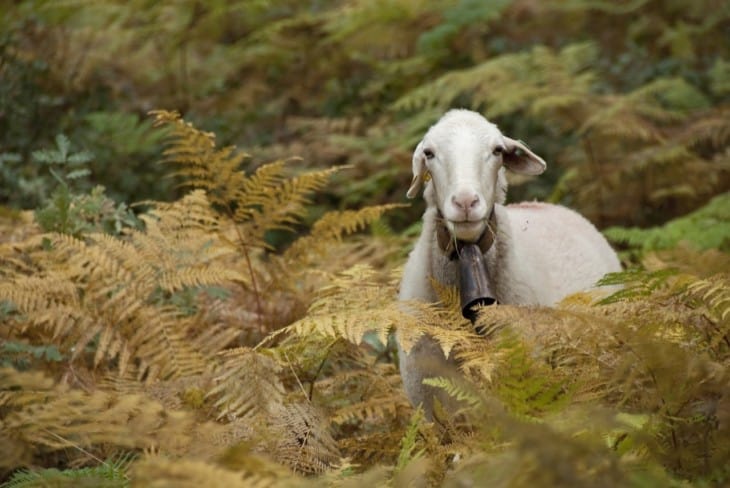
Although small amounts of this type of fern is not fatal to animals, grazing livestock can consume a significant amount of the plant. They will not readily consume the plant unless alternative forage is unavailable. Horses can fall victim to Western Bracken poisoning if they receive baled forage containing this fern.
Bracken fern poisoning in cattle, sheep, and horses is cumulative. The animals will only begin to show symptoms after consuming large quantities daily for about a month. The prognosis is generally poor because the internal damage to organs is irreversible.
According to the US Dept of Agriculture, milk from cows that have consumed large quantities of Western Bracken fern may be hazardous to humans.

Are Ferns Poisonous For Birds?
If you have a beloved parrot or budgie, there is no need to get rid of your fern. Besides being beautiful, common types of ferns, like Boston ferns, are an ideal choice for pet owners. Ferns are one of the safest types of plants to have in the home when you have small children or pets.
To keep pet birds healthy, it is essential to provide greens and tasty fresh fruit and vegetables like broccoli, kale, or spinach. The fern plant in your home might not be poisonous to your pet, but it also isn’t tasty or nutritious.


